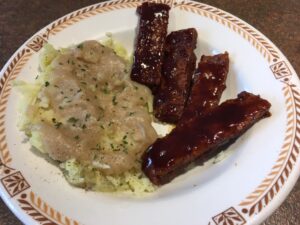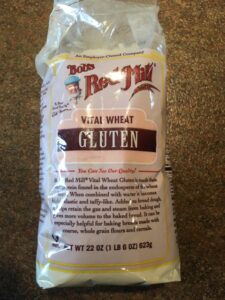Did you know that common oils are one of the most highly inflammatory "foods" we can eat?
And when it comes to heart disease, oils and inflammation seem to go hand-in-hand.
I know this may be surprising to many of you, since oils are often touted as health foods by savvy marketers and even some health professionals.
I'm always reluctant to call oil a FOOD, because oils are simply the pure fat which has been extracted or pressed from olives, seeds, corn, coconuts, vegetables, nuts, or fish. As described in my article here, all oils are 100% pure liquid fat that contribute to many health issues, including inflammation.
One reason these extracted fats are so inflammatory is because of their high Omega-6 content. Omega-6 is a polyunsaturated fat that, once consumed, metabolizes into another form of Omega-6 called LA (linoleic acid). It's linoleic acid that produces prostaglandins and other fatty molecules that contribute to inflammation.
A study was released in 2018 by the researchers in the Department of Preventive Cardiology at St. Luke's Mid-America Heart Institute which took a look at Omega-6 vegetable oils as a driver of coronary heart disease (CHD). The findings revealed that the linoleic acid found in oils is indeed concerning. Here are just a few of their findings:
- Linoleic acid metabolites promote cardiac arrhythmias, cell death, organ failure and cardiac arrest.
- Linoleic acid is the most abundant fat found in atherosclerotic plaques, and this has been known since at least the 1960's.
- An excess dietary intake of linoleic acid causes greater endothelial activation compared with an excess of saturated fat (a critical step for inducing atherosclerosis).
- A meta-analysis of randomized controlled trials in humans found that when saturated fat plus trans-fat is replaced with omega-6 fat (high in linoleic acid), there is an increase in all-cause mortality, ischemic heart disease mortality and cardiovascular mortality.
- Linoleic acid is inflammatory to the vascular endothelium.
Here's how the researchers summed it up:
In summary, numerous lines of evidence show that the omega-6 polyunsaturated fat linoleic acid promotes oxidative stress, oxidised LDL, chronic low-grade inflammation and atherosclerosis, and is likely a major dietary culprit for causing CHD, especially when consumed in the form of industrial seed oils commonly referred to as ‘vegetable oils’
Take another look at that last bullet point: Linoleic Acid is inflammatory to the vascular endothelium. The endothelium refers to the thin, single layer of endothelial cells that line the inside of our arteries. These protective endothelial cells produce nitric oxide which keeps our vessels open and allows for proper blood flow. But once the endothelial lining gets damaged, fats and cholesterol enter the artery wall and pave the way for plaque formation.
Chronic inflammation then results because our bodies recognize plaques as a threat and go on the defense by sending immune cells to that area to begin the healing process. That's what chronic inflammation is. The body's way of protecting us against something lurking in the body that shouldn't be there. The immune system goes on high-alert because it's senses some type of threat, and dispatches immune cells to counteract the threat and begin the needed repairs.
However, when immune cells remain activated and overstay their welcome, persistent, chronic, low-grade levels of inflammation result - and our arteries are one of the most likely sites for this to occur. There are no nerve endings in our arteries, which is why we don't feel excruciating pain when all of this is going on.
To make matters worse, some of those hovering immune cells will decide to switch teams! They go from being protective cells to damaging cells, and when those damaging immune cells combine with fats and cholesterol, they actually contribute to plaque formation and lead to even more inflammation.
Another study which was released in 2018 took a look at the role of those damaging immune cells. The study, conducted by the La Jolla Institute for Allergy and Immunology, showed that a diet high in fat and cholesterol depletes the ranks of artery-protecting immune cells by turning them into promoters of inflammation which worsens the plaque buildup that occurs in cardiovascular disease.
The researchers reported that inflammation is a key factor to the hardening and narrowing of the arteries, known as atherosclerosis. The lead researcher was quoted as saying:
"People think atherosclerosis is just about cholesterol, diet, and exercise, but it's actually an immune disease. The blockage of arteries is very much due to the immune system reacting to excess cholesterol and lipids in the walls of the blood vessels." He goes on to say "With a western diet, protective cells change to damaging cells, causing more inflammation."
It's not unusual for Americans to add oil to their skillets, their salad dressings, and their baked goods. Plus restaurant meals, fried food, and processed junk foods are typically loaded with it. Eliminating these health-damaging extracted oils from your diet is one of the best decisions you can make!
If you found this article helpful, check out our online course "Inflammation & Your Diet"
Watch this video: How to Saute, Roast, and Bake without Oils
Take a 1-question quiz about oils here.
Click here to get a free copy of "10 Simple Dessert Smoothies"




